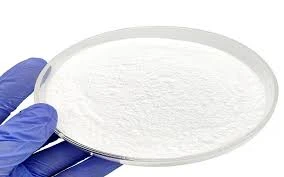Understanding API in Pharmaceutical Analysis
Active Pharmaceutical Ingredient (API) is a fundamental concept in pharmaceutical analysis, encompassing the primary component that delivers the intended therapeutic effect in drug formulations. The significance of APIs cannot be overstated, as they serve as the backbone of the pharmaceutical industry, ensuring both efficacy and safety in medications.
APIs can be derived from various sources, including natural products, chemical synthesis, or biotechnological processes. They are the substances responsible for the pharmacological action observed when a drug is administered to a patient. For instance, in a medication for hypertension, the API would be the specific molecule that lowers blood pressure.
The process of developing an API is complex and requires rigorous scientific research and development. This involves extensive stages, from chemical synthesis and purification to formulation and stability testing. In the initial phase, researchers identify promising candidates through pharmacological screening, structure-activity relationship studies, and optimization of chemical synthesis methods. Once potential APIs are isolated, they undergo characterization to determine their molecular structure, purity, and properties.
Pharmaceutical analysis plays a crucial role in the development and quality control of APIs. Techniques such as High-Performance Liquid Chromatography (HPLC), Gas Chromatography (GC), and Mass Spectrometry (MS) are routinely used to analyze and quantify APIs in various formulations. These analytical methods are essential for ensuring that the correct dosage of the API is present, verifying the purity of the substance, and identifying any possible contaminants or degradation products.
api stand for in pharmaceutical analysis

Furthermore, regulatory agencies like the U.S. Food and Drug Administration (FDA) and the European Medicines Agency (EMA) set stringent guidelines for the manufacturing and testing of APIs. These regulations ensure that APIs meet specific standards for quality, safety, and efficacy before they can be used in commercial drug formulations. For example, Good Manufacturing Practice (GMP) guidelines govern the production and quality control processes of APIs, ensuring that they are consistently produced and controlled according to quality standards.
Stability studies are also an integral part of pharmaceutical analysis concerning APIs. These studies assess how APIs react under various environmental conditions such as temperature, humidity, and light exposure. Understanding the stability of APIs helps in determining their shelf life and appropriate storage conditions, which directly impacts patient safety and medication efficacy.
Another important aspect of pharmaceutical analysis related to APIs is the assessment of bioavailability and bioequivalence. Bioavailability refers to the proportion of the active ingredient that enters the systemic circulation and is made available for therapeutic action. Bioequivalence studies compare the bioavailability of a generic drug to its branded counterpart, ensuring that patients receive the same therapeutic benefits.
In conclusion, the importance of Active Pharmaceutical Ingredients in pharmaceutical analysis cannot be overemphasized. They are the vital elements that underpin the efficacy of medications, necessitating careful research, rigorous analytical testing, and adherence to stringent regulatory guidelines. As the pharmaceutical industry continues to innovate and expand, a deeper understanding of APIs and the methods used to analyze them will remain critical to ensuring patient safety and the successful delivery of therapeutic agents. The ever-evolving nature of pharmaceutical sciences necessitates ongoing education and adaptation in analytical techniques to meet the demands of developing safe, effective, and high-quality pharmaceuticals.

